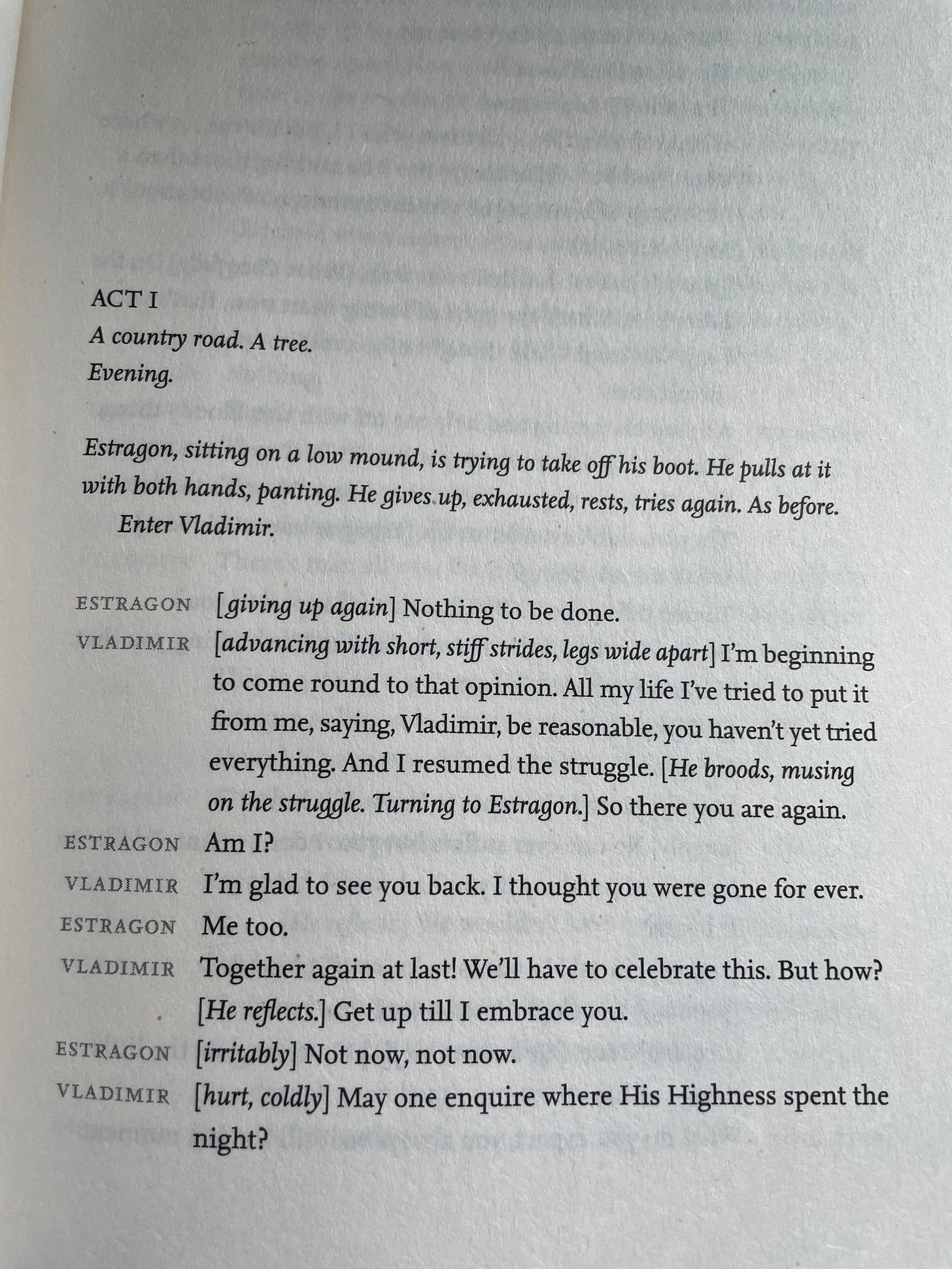Waiting for Godot, by Samuel Beckett
🖤🖤
“Nothing to be done.” These words open Beckett’s play, and sum up its rejectionist mood.
Didi and Gogo meet at a tree every day and wait for Godot. Will he come? He promised he would. And what will they get when he does? They do not know. Some sort of salvation. “A supplication,” perhaps.
But life is miserable to them. They, more than once, wish to kill themselves, but can’t quite pull themselves together long enough to succeed.
They meet a misanthrope (who they humor) and his slave (who entertains and hurts them, in turns). It passes the time.
They meet them again the next day. The misanthrope (who they beat) has aged beyond recognition and gone blind. The slave has become mute. It passes the time.
They can’t live. But they can’t die either. And so they wait for Godot.


